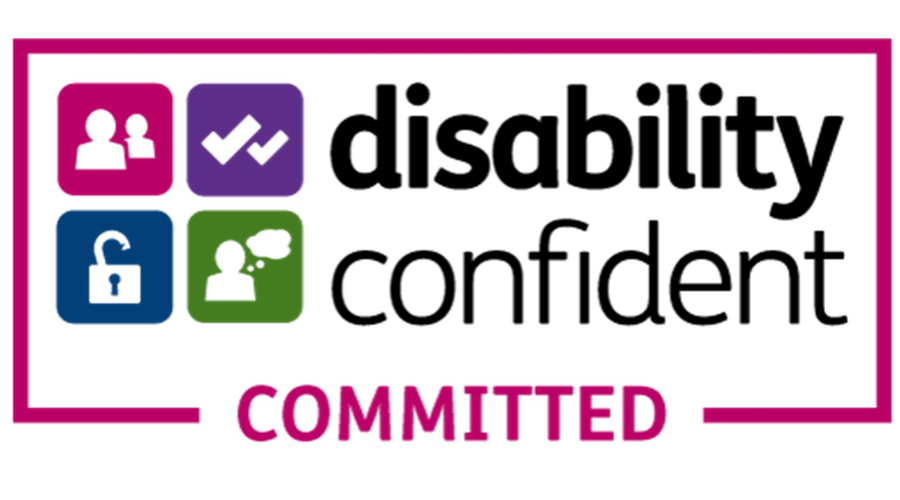Disability Confident is a government scheme that encourages employers to improve how they recruit, retain and develop disabled people in an inclusive and accessible way.
The scheme has three levels designed to support employers in their Disability Confident journey.
By signing up to the scheme, we’ve made several commitments to support disabled people, including that we will:
- Provide an inclusive and accessible recruitment process.
- Offer interviews to disabled people by ringfencing a minimum number of interview slots for disabled applicants who meet the minimum criteria for a role.
- Provide reasonable adjustments during the recruitment process.
- Support our disabled employees to thrive, including through making reasonable adjustments.
